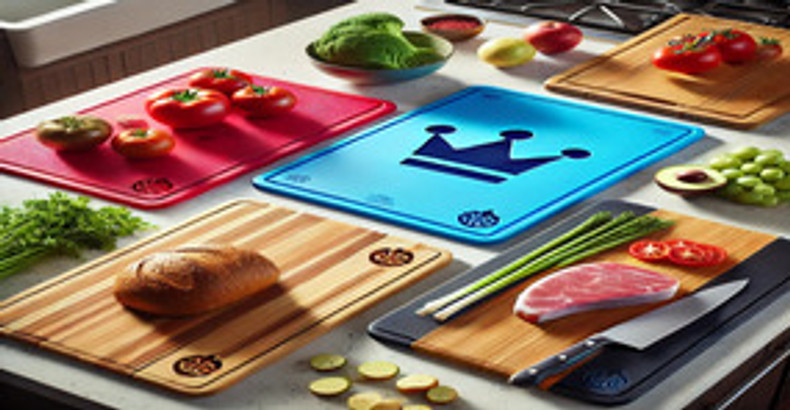Custom Plastic Cutting Boards vs. Other Materials: Pros and Cons
When it comes to choosing the right cutting board, the material is key. Custom plastic cutting boards offer unique advantages over other materials, making them an excellent choice for both home cooks and professional chefs. Let’s delve into the pros and cons of plastic cutting boards compared to other popular materials like wood and bamboo.
Plastic Cutting Boards: The Clear Winner
Durability and Longevity Plastic cutting boards are known for their exceptional durability. Unlike wood, they are less likely to crack or warp over time, even with heavy use. This makes them a long-lasting option that provides great value for money.
Ease of Maintenance One of the standout benefits of plastic cutting boards is their ease of maintenance. They are dishwasher safe, which means you can sanitize them thoroughly after each use without worrying about damage. This is a significant advantage over wood and bamboo, which require careful hand washing and drying.
Food Safety Plastic cutting boards are non-porous, which means they don’t absorb juices from raw meats, poultry, or seafood. This feature minimizes the risk of cross-contamination and makes plastic boards a safer choice for food prep. Additionally, they can be easily color-coded to prevent cross-contact between different types of food.
Cost-Effective Plastic cutting boards are typically more affordable than their wooden and bamboo counterparts. This cost-effectiveness makes them a practical choice for both budget-conscious home cooks and commercial kitchens needing multiple boards for different tasks.
Wood Cutting Boards: The Classic Choice
Aesthetic Appeal Wood cutting boards are often favored for their natural beauty and classic appeal. They can double as serving platters, adding a touch of elegance to your kitchen and dining table.
Knife-Friendly Surface Wood is gentler on knives, helping to maintain their sharpness. However, this benefit comes with a trade-off, as wood boards require regular oiling to maintain their condition and prevent drying out.
Natural Antibacterial Properties Certain types of wood, like maple, have natural antibacterial properties. However, wood boards are porous, which can harbor bacteria if not properly cleaned and maintained.
Bamboo Cutting Boards: The Eco-Friendly Option
Sustainability Bamboo is a renewable resource, making bamboo cutting boards an environmentally friendly choice. They grow quickly and can be harvested without harming the plant, making them a sustainable option.
Hard Surface Bamboo cutting boards have a hard surface that can withstand heavy chopping. However, this hardness can be harsh on knives, dulling their edges over time.
Lightweight Bamboo boards are lightweight and easy to handle. They are also more resistant to water damage compared to traditional wood boards, but they still require careful maintenance to prevent splitting and warping.
Why Choose Plastic Cutting Boards?
While wood and bamboo cutting boards have their merits, plastic cutting boards offer unparalleled benefits in terms of durability, maintenance, and food safety. They are a versatile and practical choice for any kitchen, ensuring you have a reliable surface for all your food prep needs.
By opting for custom plastic cutting boards, you can enjoy the added advantages of tailored features such as integrated measurement guides, juice grooves, and built-in compartments. These enhancements can streamline your cooking process and elevate your kitchen experience.
When selecting your next cutting board, consider the benefits of plastic and how it can meet your culinary needs effectively and safely.

